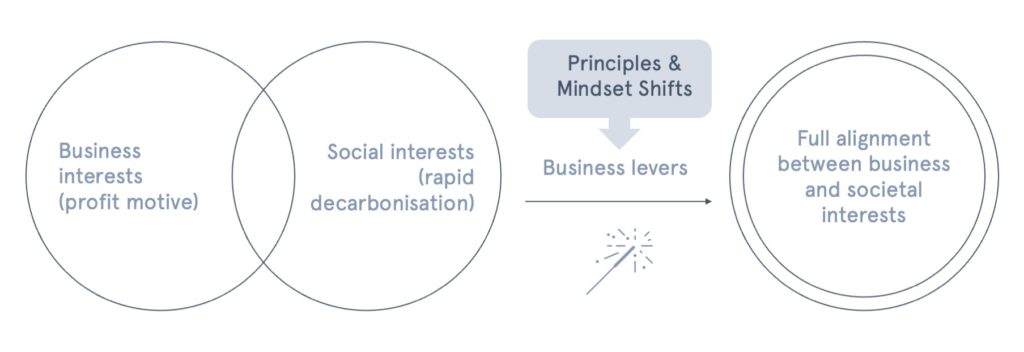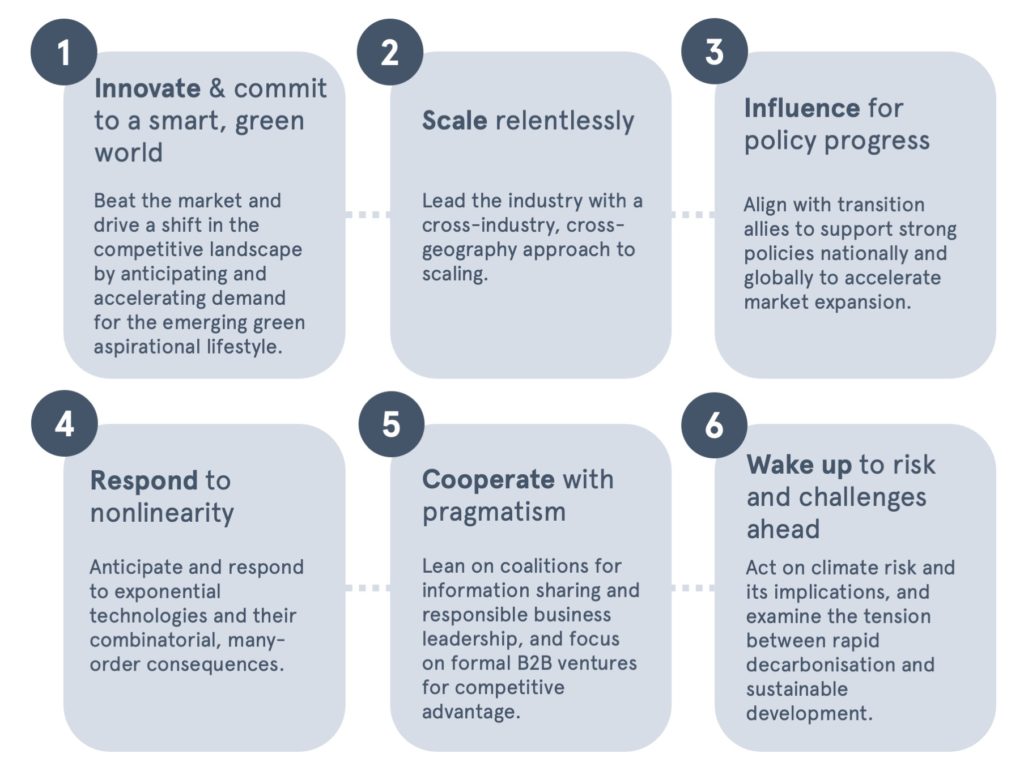
It is widely recognised that the world is not decarbonising fast enough. However, the models informing key decisions that are failing to accurately predict change are less recognised: both the severity of climate change and the speed at which solutions are deployed are repeatedly underestimated.
This is problematic because underestimating the planetary crisis and our capability to address it slows down action. On the other hand, the belief that change can be fast heightens ambition, in turn accelerating change. Yet, business as usual remains less transformative than it needs to be, given the perception of misalignment between profit and rapid global decarbonisation. Even those pursuing change might find themselves captive to incentives rewarding unsustainable practices.
Considering that profit typically beats societal interest in business decision-making implies that it is the motive for accelerating decarbonisation which will drive widespread behavioural shifts.
This poses the question: how can business win by accelerating decarbonisation?

Anna Murphy, Senior Consultant at Nordic Sustainability and MPA student at the Institute of Innovation and Public Policy, UCL, spent last summer exploring this question. Her report draws on three systems theories (technological revolutions, system transitions, and tipping points), explains their implications for business, applies the insights to the light road transport sector, and builds learnings into a series of principles and mindset shifts for business.
The hope is that business strategists gain greater clarity and curiosity about the opportunities of driving rapid system transitions towards a decarbonised world.
The Principles

The report concludes that the perception of limited business opportunities in accelerating decarbonisation does not hold. Incumbents underestimate the speed of expansion by innovators. Technological change and the green geopolitical race are gaining pace, further tilting interests. That said, two mindset shifts – long-termism and determination – are crucial. Tesla, which emerged as the clearest example of a system shifter and industry leader, displays these well: Tesla tapped into the digital paradigm shift to lay the foundations for a long-term shift from ownership to usership, while investment into batteries and charging infrastructure reveals relentless determination to build out entire systems, despite the scale of the challenge. Yet, ‘determination’ for innovators and incumbents looks different. Even as change accelerates, incumbent ‘determination’ requires a degree of moral leadership to move from preparing for a rapid transition to accelerating it.
While not the focus of the research, it did emerge that broadening ‘decarbonisation’ to a ’sustainable development’ lens revealed the need for moral leadership amongst both innovators and incumbents. The business case for the simultaneous support of sustainable development and a rapid transition is less obvious than that of decarbonisation alone, and there is a need for research and rigorous debate on the role of business in addressing this tension.
Analysing and working with complex systems is challenging, and this is just the start. We are excited to explore how these principles apply in practice, to learn from clients and fellow consultants, and to refine them over time. Please don’t hesitate to reach out!
Find out more
You can find the full report and executive summary by clicking the link below.


